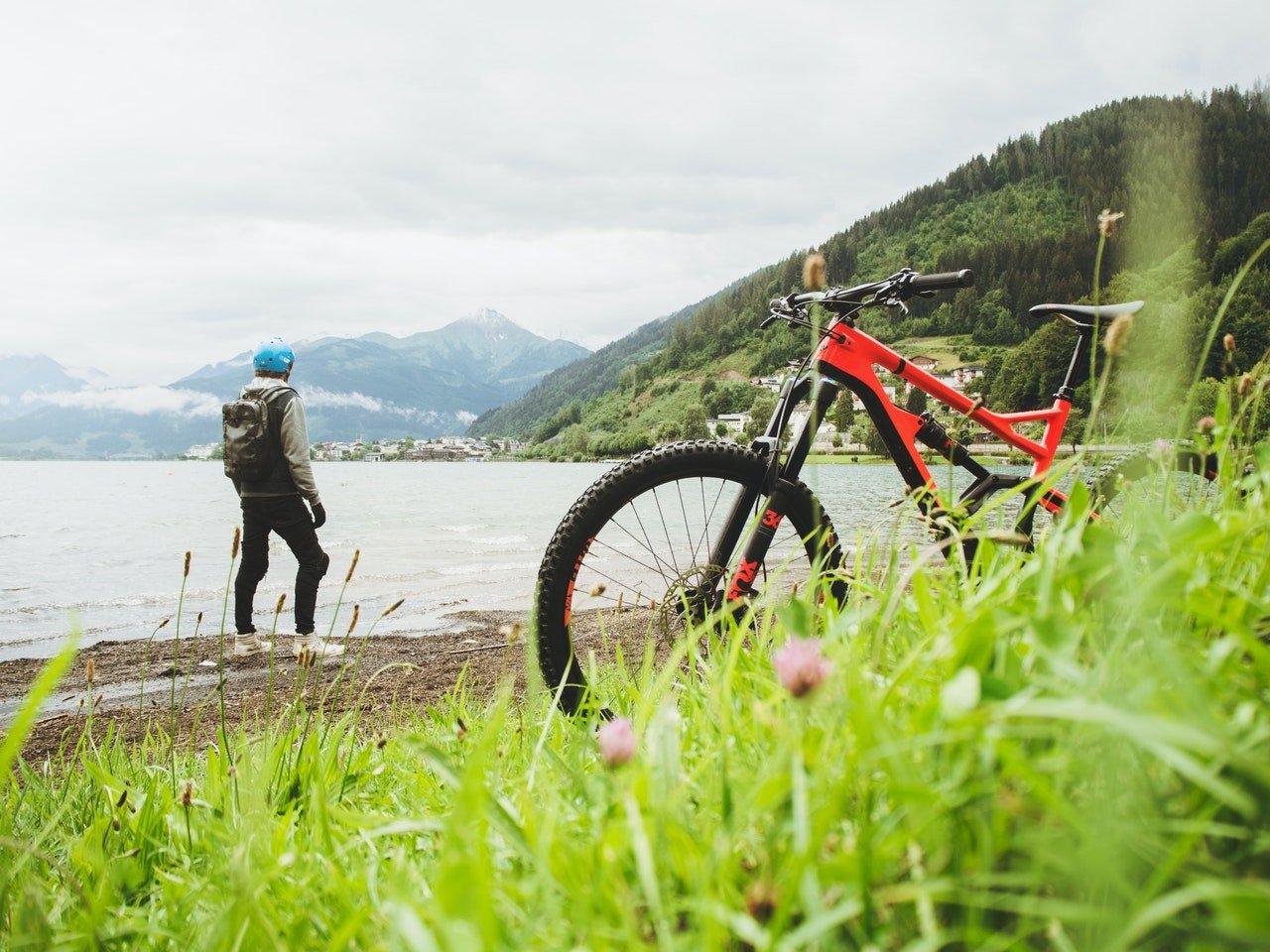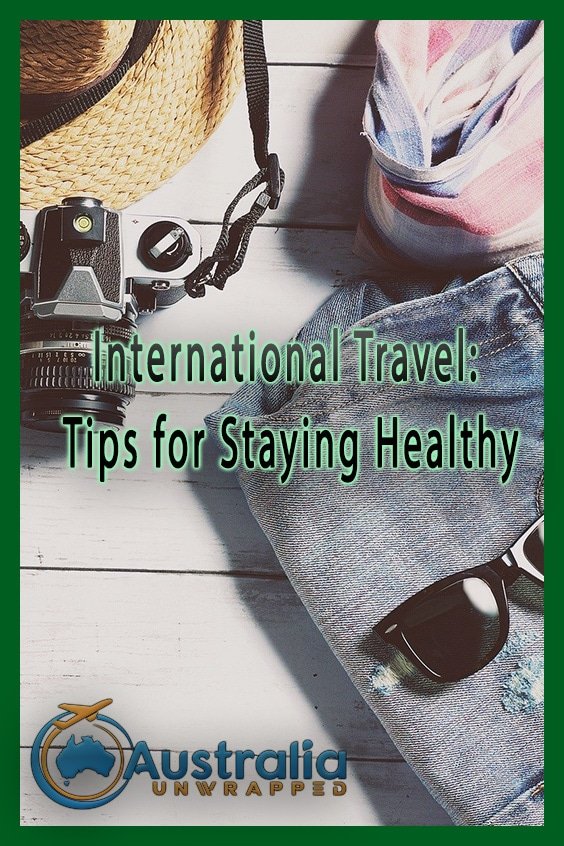Tips for Staying Healthy when Travelling Internationally

Health should always be your top priority. Whether you’re relaxing at home or on a beach, you have to look out for yourself. If that beach happens to be in another country, you’re going to have to take a little extra care. Travelling all around the world is a great way to get to know different cultures and environments. It’s also somewhat of a risk for many individuals. You’ll find yourself in unfamiliar regions where you can’t exactly orient yourself. These environments might be home to pathogens that you aren’t used to, or they could make it difficult for you to seek treatment in case something goes wrong.
Disclosure this article contains sponsored content.
Instead of risking your health, you might just want to take precautions to prevent any bad situations from arising. Watching out for your health is especially important when you’re abroad. When you aren’t surrounded by your usual, familiar environment, all rules go out the window. It’s something you have to be prepared for if you want to avoid risking your health. If you’re unsure of how to handle international travel and its risks, here are a few tips that will help you stay healthy in both mind and body while you travel.
Prepare ahead of time
When it comes to making travel plans, there’s nothing more important than preparation. While a spontaneous trip abroad might seem like a fun idea, it’s not always the healthiest option. To avoid any health risks or complications, you have to prepare accordingly.
For starters, you’ll want to go to your physician for a check-up. This should be done around four weeks before your scheduled trip. They should do some basic blood tests and a physical exam to eliminate any obvious ongoing health issues. Visiting a doctor that specializes in travel health can also be helpful, as they will be able to warn you about the specific health risks of certain regions.
It wouldn’t hurt to consult the WHO for information about these regions. The WHO travel and health guide is an invaluable resource when travelling. WHO experts analyze the risks of endemic disease all over the world, allowing travellers to carefully choose their destination.
Get the right kind of health insurance

You never know when a health issue can pop-up. If you find yourself abroad and require medical assistance, it’s not guaranteed that you’ll be able to afford it. Various countries lack the health infrastructure to provide adequate healthcare to everyone, especially in the public sector. Choosing private medical assistance can get very costly. It’s unlikely that your regular insurance covers treatment in another country, which is why it would help to double down on precautions.
Many companies offer short-term travel insurance for just this situation. In the unlikely event that something does happen, you can be covered for the medical expenses. The fees are reasonable and there’s no reason to not take this option.
Before you decide to opt for travel insurance, check if your insurance company offers deals for international travel. It could save you time from searching for another insurance or travel company.
Pack your essentials
Packing for a trip is different when you travel abroad, rather than within state lines. You have to consider that the country you’re travelling to might not have the supplies and medication that you need on a regular basis. Instead of packing more clothes, shoes, or towels, make packing essential supplies a priority.
Always bring your medical documentation with you, no matter where you’re headed. You never know when you might have to present essential documents in an emergency situation. Taking a medical kit with you goes without saying. It’s something you want no matter where you’re travelling, even if it’s only a local trip. If you’re travelling with someone who has diabetes, allergies, or any common condition, having a med kit with you would be very helpful. It contains bandages and wraps which come in handy for hikes and mountain trails. You don’t want any small scratches to become infected along the way, so remember to wrap them up.
Prepare an emergency contact list
Country lines don’t mean much to the average person, but they mean everything to governments. If you happen to run into trouble, your home country doesn’t necessarily have jurisdiction to help you. On the other hand, this is what consulates and embassies are for. Contacting them can give you some level of support from your home country, especially in situations that might concern your health. This is why it helps to have the emergency contact list in case something happens.
Other numbers you should add to this list include your health insurance provider. If you opted for temporary travel insurance, make sure you write down their numbers and contact them if something comes up. Relatives should also be a top contact priority. They will have the necessary information regarding your medical records should you be unable to communicate for one reason or another.
Take precautions when eating out
A significant percentage of travellers see the local cuisine as one of the primary reasons for visiting a region. There’s nothing quite like tasting another culture’s food for the first time. Travelling to expand one’s palate is a pretty popular reason, but it’s something that should be done with care.
Our digestive systems are used to the natural bacterial makeup of our local environments. Any significant changes that occur could lead to sickness or infection. This depends on the individual, their tolerance for different food, and their immune systems. It also depends on the extent of change. Many countries have relatively lax health standards, leading to a higher potential for food-related illnesses. While the local population might be used to the food, foreigners could be negatively affected.
This doesn’t mean you should avoid every single food establishment you run into. There will be more than enough clean and sanitary locations to choose from. The problem’s often lie in the most tourist-oriented areas. The farther you are from the epicentre of tourism in the area, the better your chances are of encountering clean and healthy food.
Maintain your exercise regime

Many travellers find it difficult to continue exercising while they’re abroad. The combination of travel exhaustion and small living spaces tends to limit the amount of exercise you can do. This is especially true if you travel with family, as you will often end up sharing a room. If you’re used to working out in a gym, you can only hope that the hotel you’re staying in has one.
Even if you lack a gym or yoga studio, this doesn’t mean you should neglect your physical health. While travelling, there are lots of ways to get your blood pumping with different kinds of exercises. If you’re visiting a mountainous area, hiking is a good option. You can enjoy the fresh air while getting a solid workout from just moving around and exploring your environment.
Outdoor biking is a good alternative as well. Whether you want to ride on flat surfaces or mountainous areas doesn’t really matter. Mountain biking is a pretty popular sport on its own, and you can find groups and tours wherever there’s mountainous terrain. Those with a penchant for swimming should consider finding a pool where they can practice. If you’re travelling to a coastal area, make sure the water is safe for swimming before you decide to take a dip.
Get enough sleep
Travel can be pretty exhausting, especially when you cross time zones. Getting enough sleep is difficult enough after spending hours in a car, train, or plane, but the added stress of travelling will also contribute to keeping you up at night. It’s important that you anticipate this drastic change and try to adapt.
Generally, we all need around 7-8 hours of sleep every night. While travelling, the turbulence and constant movement make it difficult to get quality sleep. This means you might need a few more hours as you go. To counteract this loss, you can try to sleep before you head on the road. This will help you avoid exhaustion as you travel.
Try to time your sleep shift so that it matches the time zone you’re travelling to. This will help you adapt to jet lag. Consider the current time at your destination and plan to go to sleep at an appropriate time for the location. It might be difficult for where you are now, but once you arrive, you’ll find it easier to adjust your sleep schedule.
Watch your nutrition

When you’re eating at home, you know exactly where to get the groceries you need. Nutrition plays a big role in our health, and it’s something people are paying more attention to nowadays. Travelling tends to make it difficult for individuals to get all the food they normally get. If the climate is different, costs and availability make it difficult to maintain normal nutrition. You’re stuck with the restaurants and shops in your general area.
This shouldn’t stop you from watching your nutrition. If you can anticipate what you’ll lack in any given area, you can compensate by bringing the right vitamins and minerals in the form of supplements. The great thing about supplements is that they are easy to transport and provide you with all the nutrients you couldn’t normally find in some areas.
Health gurus often recommend taking something small and compact, to help make room for diverse supplements. Start with the essential vitamins and minerals. Magnesium and Zinc tablets are always a good choice. Bring acai berries and superfood moringa for a boost of antioxidants. Moringa is especially useful as it can be transported in powder form without losing any nutritional value. Not to mention, these natural supplements also contain lots of protein, which you’ll need to increase muscle health on your journey. If you wish to know more about which natural or green supplements to try, click here.
Stick to three meals a day
Speaking of food and nutrition, you shouldn’t neglect your regular eating schedule either. It can be tempting to forego breakfast when you’re nauseous from travel, or when you aren’t used to the local cuisine. However, it’s important that you stick to at least three meals per day. This will help you have enough energy to travel without issue. If your hotel or hostel doesn’t offer breakfast, lunch, and dinner, try your best to compensate with local food.
A good idea would be to choose the accommodation that includes a kitchen. This way, you can better regulate your meals to fit your tastes. You won’t be surprised by meals that you don’t like.
Make sure you begin your day with a strong breakfast. Protein and healthy fats are a top priority, as travel can really wear you out. This is especially true if you choose walking and biking tours, which can take all day. Eggs and Greek yoghurt should become a staple of breakfast wherever you go.
Since you might have to take lunch with you while you explore the local area, try to aim for something light. Lots of fruit and nuts can help you eat on the go without the food being overbearing. When eating dinner, try to avoid having the meal too late. It might keep you up or make your sleep less comfortable. It’s often going to be the heaviest meal of the day, after all. Stick to these three meals and you won’t find yourself too hungry or exhausted from your travels.
Conclusion
Nobody wants to find themselves sick or injured abroad because they weren’t adequately prepared. Even if you get out of a sticky situation, it’s a hassle that will only ruin your vacation and the rest of your travel plans. It’s crucial that you know exactly what to anticipate wherever you travel and how you can handle it. If you have any particular health issues of your own, be prepared to appropriately react should it be exacerbated. With enough preparation and foresight, you can go through with your travel plans without much worry. Keep the above tips in mind before you embark on your journey and you’ll be just fine.
Also Enjoy:
Best Place to Find Travel Insurance











